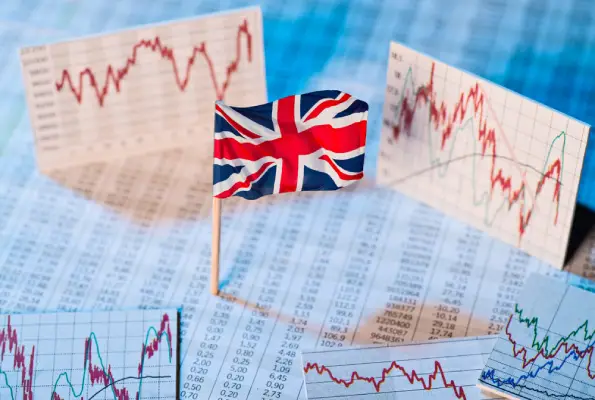The Office for National Statistics (ONS) reported that British retail sales fell in March 2024 for the first time since December 2023, even though high inflation has recently started to decline.
Most of the economists Reuters polled predicted that sales volumes would rise by 0.3% for the month. However, sales volumes showed no growth, according to the ONS, despite increasing by an upwardly revised 0.1% in February.
Food stores, internet retailers, and other non-store retailers saw declines in sales, while automotive fuel sales increased to their highest level since May 2022 and non-food store sales increased, according to the ONS.
Sales volumes decreased by 0.3% for the month when fuel sales were excluded.
“What is clear is that the first quarter of the year has been disappointing for many retailers. Lower inflation and the first 2% cut to National Insurance, which was felt in January’s pay packets, has yet to translate into a sustained recovery in spending,” Lisa Hooker, leader of industry for consumer markets at PwC said.
To increase the chances of the ruling Conservative Party in the anticipated general election in 2024, Finance Minister Jeremy Hunt announced a second social security tax cut in April, following the first one in January.
Recently, major British retailers have shown some encouraging signs. Tesco, the largest supermarket chain in the nation, and Next, a clothing company, both projected higher profits in 2024 and noted improving consumer sentiment.
The home improvement store Kingfisher issued a profit warning, but it also stated that business in the UK was outperforming that in France.
Sterling fell briefly against the US Dollar and the euro immediately after the retail figures were published.
The month of March saw the slowest rate of inflation in British consumer prices in 2.5 years, albeit it decreased less than anticipated due to higher motor fuel prices, which dampened market expectations regarding the extent of this year’s interest rate cuts by the Bank of England.
UK Will Be G7’s Worst Performer: OECD
Meanwhile, the Organisation for Economic Co-operation and Development (OECD) sees the British economy witnessing the slowest growth of the largest developed nations in 2025. As per the forecast, the European giant’s GDP will only rise by 1% in 2025, way below the rest of its G7 (Group of Seven) peers like Canada, France, Germany, Italy, Japan and the United States.
The think tank has blamed the after-effects of a succession of interest rate rises behind the United Kingdom’s lethargic show, which, as per the group, will continue to hurt the nation in 2024. OECD also warned that some elements of inflation remained “sticky” and that uncertainty over when the Bank of England (BoE) might change interest rates “will impede investment”.
The UK economy is now forecast to expand by 0.4% in 2024, a downgrade from the OECD’s previous projection for 0.7% growth. It means that for this year only Germany will see slower growth.
Chancellor Jeremy Hunt, however, saw the positive side of the grim prediction, as he said that the OECD forecast showed the UK was “winning the war” against inflation.
“This forecast is not particularly surprising given our priority for the last year has been to tackle inflation with higher interest rates”, he remarked, adding that “growth matters”.
However, Darren Jones, Labour’s shadow chief secretary to the Treasury, told the BBC, “Today’s news that growth has been downgraded again reminds the British people what they already know: after 14 years of failure, the Conservatives cannot fix the economy because they are the reason it is broken.”
The Liberal Democrats accused the Rishi Sunak government of being “economically illiterate”.
“Their no-growth policies have left the public enduring sky-high mortgage rates, the price of a weekly shop going through the roof, and stealth taxes hammering both pensioners and working people,” said Liberal Democrat Treasury spokesperson, Sarah Olney.
The BoE, entrusted to decide interest rates, has a target to keep inflation at or close to 2%. Inflation has slowed significantly from a 40-year high it reached in October 2022 to 3.2% in April. Interest rates, on the other hand, have been held at 5.25% since September 2023. The OECD expects the apex bank to start cutting borrowing costs from 2024 onwards, as it predicted that interest rates could fall to 3.75% by the end of 2025.
The OECD also predicted that tax receipts in the United Kingdom would “keep rising to historic highs of about 37% of GDP”.



